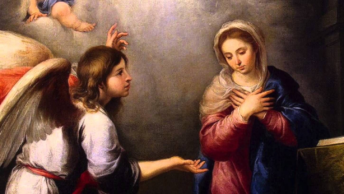
In many situations asking the right question is critically important… but coming up with the right question at the right time is an art. If a scientist doesn’t ask the right question he or she will follow paths that do not lead to solving a problem that confronts them. If the president of a corporation doesn’t ask the right question at the right time he will not successfully provide for his company’s future. If you are an employee, think of the importance of questions you put to your bosses. Asking the right question can lead to your promotion.
Think of how important it is for a police detective to ask the right question, or a doctor, or a psychiatrist. Asking the right question is a skill, an art, one that allows you to avoid going down a lot of blind alleys.
And then there those who are in love. Lovers spend hours and hours and hours asking each other questions because they want to know everything there is to know about the ones they love. Asking certain questions can lead to deepening your love for each other. On the other hand, asking the wrong question can lead to a rupture of your relationship, even cause it to end. Friends and lovers ask each other lots and lots of questions. Why? Because to know is to love, and to love is to know.
There are types of questions we also need to consider. For instance there are questions that begin with “How?” and there are questions that begin with “Why?” “How?” questions call for answers that deal with technique – they call for technological answers. “Why?” questions deal with meaning – they call for answers beyond the proofs found by using the scientific method of learning. “How?” questions seek proofs; “Why?” questions seek understandings and insights.
Take, for example, the question: “What is the meaning of life?” “What is the meaning of your life?” Using the Scientific Method will not lead you to answers to those questions.
Jesus Christ is God’s self-expression of Himself to us. In St. Mark’s Gospel, we find Him asking his disciples a terribly important question. He was asking them to tell Him who they think He really is:
Jesus and his disciples set out for the villages of Caesarea Philippi. Along the way he asked his disciples,” Who do people say that I am?” They said in reply, “John the Baptist, others Elijah, still others one of the prophets.” And he asked them, “But who do you say that I am?” Peter said to him in reply, “You are the Christ.”
It seems to me that Jesus had two reasons for asking His question. One was in order to have His disciples give some serious thought to just who they thought He was. The other was to take the opportunity to teach them about what was going to happen to Him – to teach them about just what kind of a Messiah He was going to be for them, and what He had to endure in order to fulfill the mission His Father in heaven had given Him.
In considering this Gospel passage we ought to pay attention to just why it was Jesus put the question to His disciples back then. We might easily conclude the only reason was that He wanted to take the opportunity to teach them about just who He was and what it was He had to do. If we think that was the reason we would, of course, be correct. But there was another reason, a reason that I think was the most important of all, and that was to cause them to realize for themselves just who and what He was. It was what they knew in their hearts and minds to be true that was uppermost, I think, in His mind. He wanted them to articulate what was already deep within their hearts and souls and then to realize – make real – the answer in their real-world lives.
St. Mark reports this whole episode not just for the sake of entering it into the historical record but to confront you and me, two thousand years later, with the same question that confronted those disciples back then.
Just who do you think Jesus is for you now? Is He just an interesting historical figure? A nice guy among a lot of other nice guys who have started religions? Is He, as the Muslims say, a great prophet? Is He just one among many in a long line of Jewish rabbis?
Or is Christ Jesus God’s self-expression made human so that we can see Him, know Him, and love Him as one of us? And by “self-expression” I mean that Christ Jesus is God among us making Himself available to us. Christ Jesus is God the Son, the Second Person of the Blessed Trinity, made incarnate, made human flesh and blood for us so we can encounter Him in His Mystical Body, the Church. The point is that God is close to us, not distant, remote, and aloof.
As Christians we believe that God has made Himself available to us His children, not just to our minds but available to us in our humanity, in our whole persons, available to our minds, our hearts, our souls, and our bodies.
As Catholics we believe God has made Himself readily available to us in His Christ who comes to us after His resurrection in special ways in the Seven Sacraments of our Church. As Catholics we believe that God is especially present to us and deep within us in Holy Communion. The sixth chapter of St. John’s Gospel is especially dear and important to us. When you go home today, take out your bible and read the six chapter of St. John’s Gospel. It won’t take you long – maybe ten minutes at the most.
But all of this would not have happened were it not for what Jesus went on to tell Peter and the other disciples. All of this would not have happened unless Jesus had told them what He was going to do, and then did, namely to suffer terribly, to be rejected by the chief priests and elders, to be put to death, and after three days to rise again.
Is Jesus Christ simply an interesting historical figure? Is Jesus Christ just one religious leader among others? Just who is Jesus Christ for you? Just who do YOU think He is?
Peter and the other disciples gave their answers. What is your answer to His question?








